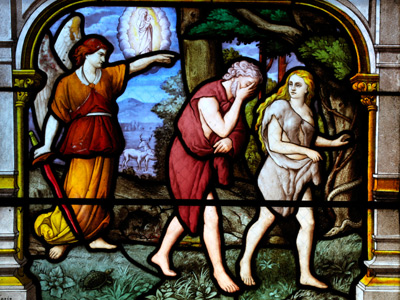
Christianity - What is Life for Christians?
This GCSE RE Christianity quiz takes a look at the Christian life. How should the life of a Christian differ from anyone else’s? If the believer does not find that their faith has a positive effect on their lifestyle and choices, then something would be amiss. Not only ought they to have taken on board a rich lore of values and examples, but true Christianity (remarkable as it may seem to those outside it) is essentially about a direct personal relationship with, and experience of, God through Jesus and His Holy Spirit. Such a change of emphasis and loyalty are bound to show out in the life of the believer, and the decisions and priorities by which they conduct themself.
There should also ideally be a seamlessness in their life, whereby daily activities and devotional times overlap into one another.
'What does the Lord require?' he asks, rhetorically ... and then offers three of the following answers, among which we have mischievously hidden a false fourth one. Which is this FALSE one?
'Christ has no body now on earth but ... (?) ...
' ... no body now on earth but yours; no hands, no feet ... '
'May we ... (?) ...
(There then follow three of these four Christian intentions; which ONE is not in the original?)
'Everything was shared between the believers ... so nobody went short; even funds from the sale of private dwellings were distributed to help alleviate the needs of others.'
On first glance, at least, to what great political movement does this behaviour (and even wording) bear almost startling similarity?
There are echoes here of a fine old missionary hymn, 'God is working His purpose out', for which some background, analysis and rationale may be found at Missionary Hymn
'The kingdom of God is not a matter of ( ... ... ) , but of living a life of goodness and peace and joy in the Holy Spirit'.
What was, or were, the rejected priority in the 'blank' above?
As mentioned above, an analogy some find helpful is that of dual citizenship: St Paul wrote that we are 'in this world, yet not of this world', and once our mortal body expires, we migrate into that other realm to which we are entitled (through Jesus having conquered the apparent barrier of death in the Resurrection).
'May the words of my mouth and the meditation of my heart be (always) pleasing in Your sight, O Lord, my ~
(How does he then refer to God?)
Ready for more?
not all...
quizzers. Try to win a coveted spot on our Hall of Fame Page.







